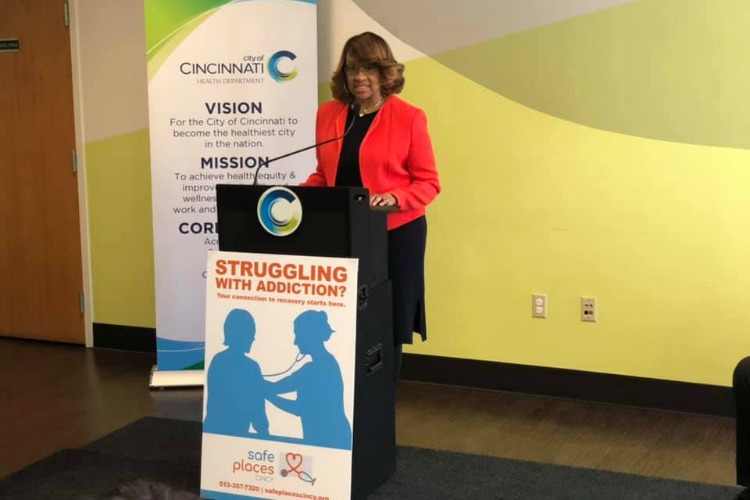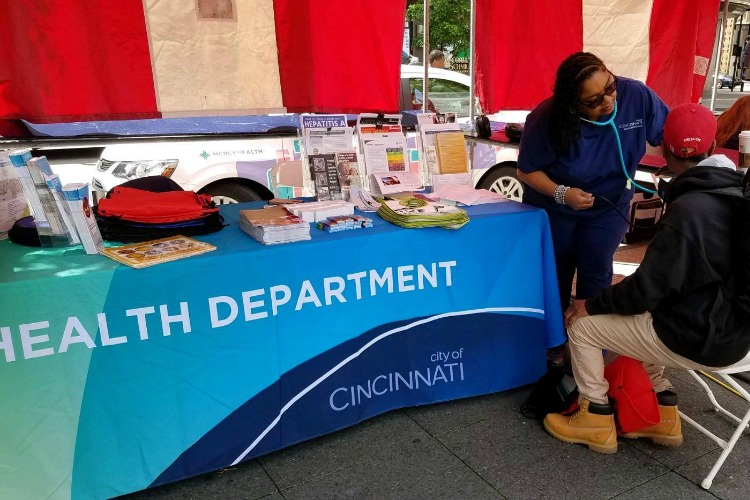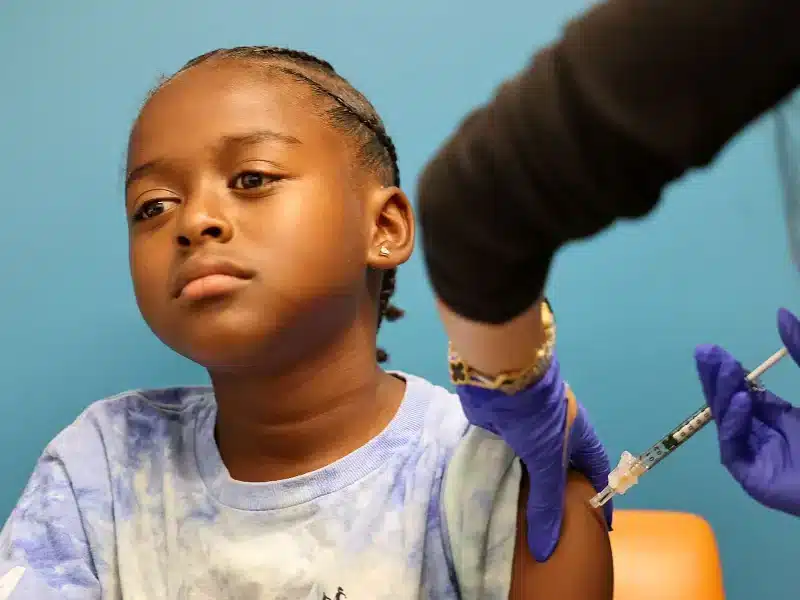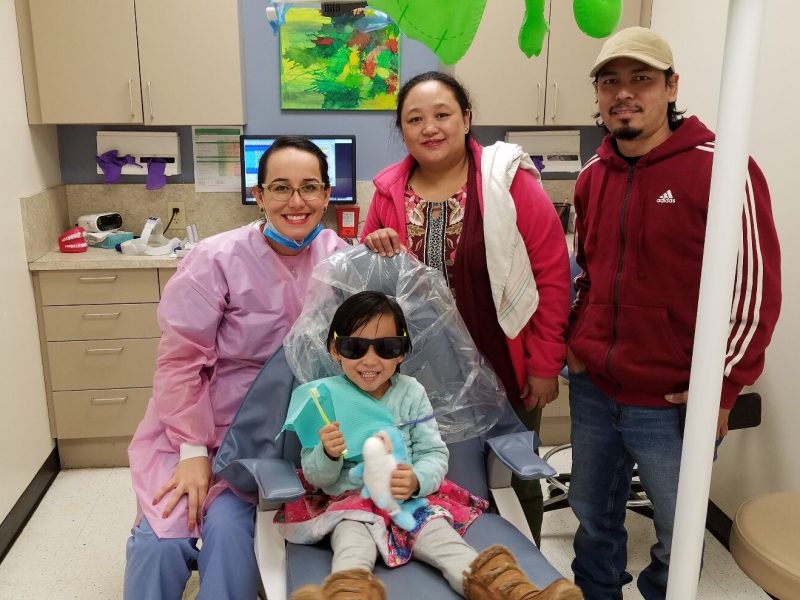Melba Moore tackles the complex scope of public health in Cincinnati
As the newest health commissioner for the Cincinnati Health Department, Moore is committed to improving all aspects of wellness through collaboration with community partners.
Melba Moore has been in Cincinnati for less than a year but has already brought a burst of energy to her new position as health commissioner of the Cincinnati Health Department.
She comes to Cincinnati from St. Louis, where she worked as commissioner of health for the City of St. Louis’s Health Department for 17 years. Moore is new on the job but she’s certainly not new to public health. She knows the challenges of the public sphere. And she doesn’t shirk from the stress and intensity of the job.
When describing herself, Moore doesn’t mince words.
“Melba Moore is pizzazz,” she says with assurance. She is unapologetically cosmopolitan and confident. She says she’s courageous and knows what she wants.
“Once I get on my track, don’t get in my way,” she says.
Doing the right thing, the right way
Moore was raised between St. Louis and Detroit in a family full of strong women. The themes of family and sisterhood have been consistent throughout her life and have influenced her own advocacy for public health initiatives that support healthy communities. Her commitment to vulnerable women and children is one of the driving forces of her new position here in Cincinnati.
As a young girl, Moore’s mother thought she should go into nursing, but she wasn’t interested the practice of medicine, at least not on a clinical level. She graduated from high school in Detroit in 1974. She completed a bachelor’s degree in psychology in 1989 from Webster University. A decade later, in 1999, she graduated with a master’s degree in public health from Lindenwood University.
She was interested in helping people and public health, she says, was all about people.
Before taking a job with the St. Louis Health Department, Moore had been a healthcare worker in Detroit at a residential program for developmentally disabled youth and adults. It was this experience, and the relationships she built with the patients, that developed her heart for advocacy.
After graduate school, Moore took a job with a company in Chicago. She was traveling back and forth between St. Louis and Chicago. She fell in love with the big city and the results-focused structure and lifestyle of corporate business.
It’s this mixture of fierce advocacy and business savvy that makes Moore a particularly valuable asset to the Cincinnati Health Department. Her professionalism produces results; her heart keeps the mission on track. Hers is an urgency pointed in the right direction. She likes people as much as she likes the bottom line.
Personally speaking, Moore has a soft spot for women and infant health but she knows that the broader scope of public health is more complex. Ask her about the city’s most urgent public health needs and she’ll talk openly about the threats of drug addiction, mental health, infant loss, and cancer survival rates. All of these issues top her priority list and she’s committed to putting preemptive measures in place for the Cincinnati residents most vulnerable to them.
To this end, one of Moore’s primary goals is to strengthen and promote the city’s seven community health centers and 13 school-based centers. She wants Cincinnati residents to know that the centers exist for them and that they provide important proactive, preventative care for their personal health. She wants to keep people happy, healthy, and out of the emergency room.
“Public health looks upstream,” she explains, “to make sure the problem never gets to the clinical level.”
She also wants to make stronger connections between diverse community-based partners who are meeting the same needs. She says all of the city’s public servants — City Council, Cincinnati Police, the Cincinnati Fire Department, Waterworks, the Department of Public Services — need to work together toward shared goals. And private and nonprofit entities need to be a part of the conversation, as well.
“Everyone’s job is harder when they’re serving an unhealthy community,” Moore explains.
One of her top priority initiatives is a lead abatement program with Cincinnati Waterworks and Children’s Hospital. Another is Safe Places Cincy, a partnership between first responders, social workers, community health clinics, and local rehabilitation programs to work closely with those seeking recovery from drug addiction. Other programs address issues of mental health among youth and adults, helping reduce the stigma of mental wellness in vulnerable communities. All of these pieces come together for personal health, which, in turn, affects the health of the entire city.
Moore says there’s no reason to reinvent the wheel. Instead, she sees herself and the Health Department as one “spoke” and she wants to help keep the wheel spinning. She’s not interested in getting in the way.
Finding allies for the cause
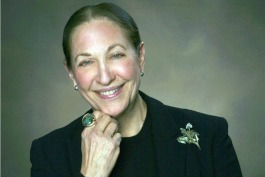
Dr. Judy Van Ginkel is president of the nonprofit Every Child Succeeds. As one of Cincinnati’s leading experts on early childhood development, Van Ginkel was excited to connect with Moore the moment she arrived in Cincinnati.
“We were eager to meet with Melba when she came because [our] program is certainly compatible with her work at the Cincinnati Health Department,” she explains.
In 1999, Van Ginkel developed her early intervention program for infants and mothers. Every Child Succeeds provides focused, hands-on support from pregnancy through a child’s first three years, by way of personal home visits. The nonprofit’s goal is to help Cincinnati moms create a nurturing environment for their children and help children get a jumpstart on mental and emotional wellness from birth.
Van Ginkel says Moore is serious about the mission of improving the health of woman and children in Cincinnati and has the tools to make it happen.
“She is very forthcoming with her ideas,” Vin Ginkel says, “and also intentional with putting together the foundation for new programs.”
Van Ginkel continues, “She seems to understand emphatically the need for coordination between programs, the strength of collaboration, and building on what [already] exists in community.”
Both women are pursuing data-driven, results-focused programs. And both see an intrinsic connection between the health of women and children and the broader status of public health.
Van Ginkel say that Moore has helped increase public support for programs like Every Child Succeeds and the community-based agencies that employ the program and its practitioners. This public support and partnership is critical for her program and others like it.
Another of Moore’s community partners is Cradle Cincinnati, an initiative to reduce the infant mortality rate in Cincinnati through community-based prenatal care, infant care, and infant loss support.
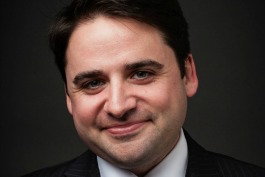
Ryan Adcock is the executive director of Cradle Cincinnati. He says that, as a public health expert, Moore has become a trusted advisor to his organization, even helping with strategy and public messaging related to the issues of preterm birth and infant mortality.
“Commissioner Moore believes strongly in community-led change,” Adcock says. She works hard to keep the “public” actively involved in their own personal health.
“She is frequently connecting directly with members of the community to make sure that our solutions are actually theirs,” he continues.
Moore’s public role as health commissioner has elevated her as a spokesperson for the collaborative work happening at Cradle Cincinnati and all across the region. Adcock believes that her decision to prioritize infant mortality in her strategic plan brings an important change within the Health Department.
“She’s been a tremendously collaborative partner whose leadership philosophy is perfectly aligned with what we believe will lead to success,” he says. “The department that she leads is filled with committed and passionate individuals who are on the front lines of the fight to reduce infant deaths.”
Paving the way for better support, deeper understanding, and better programs
Health commissioner Melba Moore is not just health administrator. She is also an academic. She is currently working on her doctoral dissertation about “the efficacy of patient navigation” in women completing cancer treatment. It’s a subject near and dear to her heart after the experience of losing her own mother and aunt to cancer. They were born, and died, eight years apart. Neither lived to see their 54th birthday.
“That experience, while it was harsh, it made me who I am,” Moore explains.
While watching her mother and aunt die from cancer, she noticed a significant difference between the experience of a woman with support and one without. Her mother had a support system, pursued treatment, and fought to overcome her diagnosis; her aunt did not.
She watched the same thing play out in her own health journey, as well. Around 2010, one of her sorority sisters, a close friend, was diagnosed with breast cancer. She invited Moore to join her on the journey as a part of her support system.
This is where Moore learned the value of community support in heath crises. She witnessed the importance of communication, community, and sharing moments of fun and joy along the road to recovery. Then, when she later experienced her own health crisis, she knew how to proceed and what proactive measures she needed to take to make it to the other side of a diagnosis.
“My fear was that I wouldn’t make the age of 54,” she says. But she made it.
She credits her health to the support she had through family, sisterhood, and community. But, she wonders, what if she didn’t work in healthcare? What if she didn’t know what preventative measures to take to keep herself healthy?
Moore believes that fear keeps women from facing the reality of their illness.
“The fear,” she explains, “plus the cost, disfigurement, and not wanting to be a burden. It keeps them from pursuing treatment and following up with their diagnostic.”
Moore remembers one particular moment that inspired her career. She was in graduate school while her mother was dying. She was, understandably, upset.
A favorite academic mentor, quite harshly, said: “Melba, eventually everyone’s mother dies.”
The reality crushed her in that moment but it also became a turning point.
Moore knew it was true: Eventually, everyone gets a diagnosis they don’t expect. Or struggles with a behavioral or mental illness. Or watches a loved one suffer. Eventually, everyone’s mother dies. If that’s the case, health commissioner Melba Moore wants Cincinnati’s public health system to be a place of comfort, support, and a “warm touch” in a difficult time. She wants to make sure no one in Cincinnati has to find their way to “healthy” alone.

